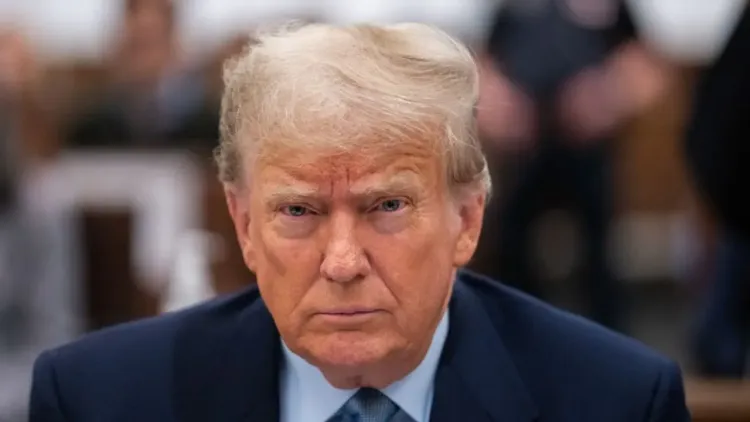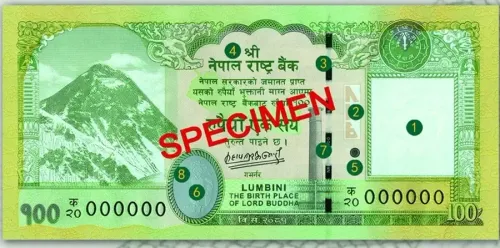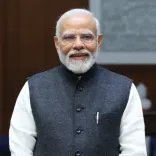Trump Issues Warning of 100% Tariffs on BRICS Nations If They Create Their Own Currency

New York, Dec 1 (NationPress) US President-Elect Donald Trump has issued a warning regarding the imposition of 100% tariffs on BRICS nations should they attempt to establish a new currency or adopt an alternative to replace the mighty dollar, thereby effectively barring them from accessing American markets.
On Saturday, he stated on Truth Social, "There is no possibility of the BRICS replacing the US Dollar in international trade, and any nation that attempts to do so should bid farewell to America."
In a bold declaration that threatens the US market access for India and the other eight BRICS members, he expressed in his characteristic style, "We require a guarantee from these nations that they will not create a new BRICS currency nor support any other currency to supplant the powerful US Dollar, or they will encounter 100% tariffs, and should prepare to say goodbye to selling into the magnificent US economy."
Trump's cautionary note to BRICS comes after his threats of increased tariffs on imports from China, Mexico, and Canada, and may be considered premature.
External Affairs Minister (EAM) S. Jaishankar has distinctly denied the notion of a common BRICS currency.
"There is no plan for a BRICS currency. Monetary systems will remain a national matter for the foreseeable future," he stated last year ahead of the summit in Johannesburg.
Within BRICS, India stands as the second-largest economy.
Despite this, Brazil's President Luiz Inacio Lula da Silva proposed a common currency at the Johannesburg summit, but no progress has been made.
During his campaign, Trump argued that the dollar was facing challenges to its status as the leading global trading currency and criticized President Joe Biden for neglecting the issue.
"The idea that BRICS nations are attempting to distance themselves from the Dollar while we passively observe is over," he shared in a post on Truth Social.
His warning to BRICS appears to serve as a loyalty test to ascertain which countries will publicly align with India's stance and acts as a preemptive alert towards Beijing.
BRICS, an abbreviation derived from the initial member countries—Brazil, Russia, India, China, and South Africa—expanded this year to include Iran, Egypt, Ethiopia, and the United Arab Emirates (UAE).
Numerous other nations have expressed interest in joining BRICS, which is evolving as an economy-centric organization of the Global South.
Given the diverse economic development stages and types of economies among its members, establishing a unified currency poses significant challenges.
Accepting any single member's currency as the trading currency of the group remains improbable.
China, as the largest economy and leading trading nation within BRICS, would likely dominate with its yuan, an outcome that India and several other members are likely to resist.
The US-sanctioned measures against nations like Russia and Iran have facilitated some increase in bilateral trade using non-dollar currencies.
Partly driven by US sanctions on Russia, India has started paying for its oil imports from Russia using a combination of rupees and UAE dirhams.
Initially, an Indian oil importer made some transactions in yuan, and although Russia preferred payments in the Chinese currency, the Indian government has prohibited this, highlighting the complexities involved in adopting a BRICS currency.
The European Union utilizes the euro, but it operates as a unified economic entity—something BRICS is not and cannot be—and most of their external trade is linked to the dollar.
In addition to being the favored currency for trade, the dollar remains the principal currency for national reserves.
According to a June publication by the International Monetary Fund, the dollar continues to play an "outsized role" in the global economy, although there has been a "gradual decline in the dollar's share of allocated foreign reserves held by central banks and governments."
Currently, approximately 60% of global reserves are held in dollars.
This situation is related to its standing as the world reserve currency, with the decline attributed to "fragmentations" and reserves being held in currencies such as the yuan, South Korean won, and the dollars of Singapore, Canada, and Australia.
(Arul Louis can be contacted at arul.l@ians.in)









